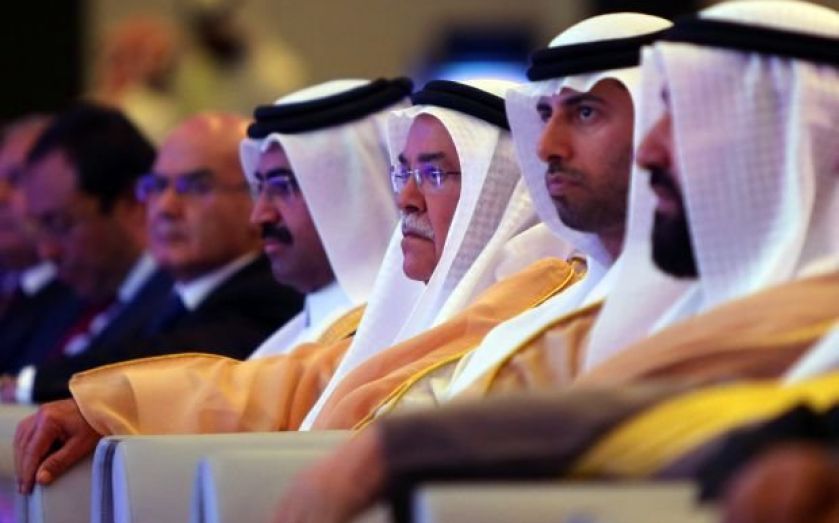Why have oil prices dropped? Gulf states blame non-Opec members

Arab Gulf ministers have argued that tumbling oil prices are not the fault of the Organization of the Petroleum Exporting Countries (Opec), and maintain that their countries will not cut oil production to counteract the fall.
The permanent, intergovernmental organisation comprises 12 member states, many of which are in the Middle East.
The group describes its purpose as being to "coordinate and unify” the nations' policies on oil to “ensure the stabilization of oil markets in order to secure an efficient, economic and regular supply of petroleum to consumers”.
According to the United States Energy Information Administration (EIA), Opec crude oil production is an important factor affecting global oil prices. It sets production targets for its member nations and generally, when Opec production targets are reduced, oil prices increase.
As a result, the 12 members have faced increasing pressure to cut their production targets in light of falling prices.
But at a meeting to address the problem in Vienna last month, the Opec members decided to keep output targets at their current levels of 30m barrels per day.
Now, the oil-rich states claim that the ensuing fall in oil prices was not because of this decision, and that it was in fact the result of comments made by speculators and producers outside of Opec.
In Abu Dhabi earlier today, Saudi Arabia's Oil Minister Ali al-Naimi said "the spread of misleading information and speculation" had contributed to the 40 per cent price fall. He added that if producer countries outside Opec wish to restrict output, “they are welcome”.
"We are not going to cut, certainly Saudi Arabia is not going to cut,” he said.
His comments were backed by those of Kuwaiti and UAE ministers, who also said no to possible cuts.
"I don't think we need to cut. We gave a chance to others (and) they were not willing to do so," said Kuwait's Oil Minister Ali al-Omair, adding that Opec would not consider an emergency meeting.